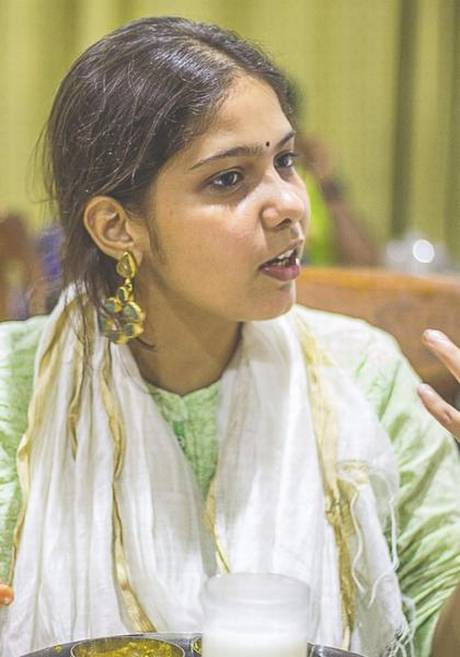Lucknow, UTTAR PRADESH / Pune, MAHARASTHRA :
There’s an emerging subculture of poetry vocalising the difficulties of marginalised communities and individuals
We’ve seen many forms of protest poetry before but we merely haven’t put a definite label to it yet. We’ve seen this from the likes of Nikki Giovanni’s ‘Rosa Parks’, Jill McDonough’s ‘Dear Gaybashers’ and, of course, Maya Angelou’s ‘Caged Bird’.
Sabika Abbas Naqvi is no stranger to performance poetry. She describes protest poetry as a natural result of urban communities and the thriving interest in the arts. Hailing from Lucknow and residing in Pune, the 25-year-old has given a TEDx talk ‘Challenging The Order of Patriarchy’ and performed at Youth Ki Awaaz’s Convergence in 2016, as well as gearing up for a forthcoming one here this weekend at Lamakaan.
Over a phone call, the noisy bustle of traffic and people chatting is audible in the background as Sabika chats about the emergence of this poetry style.
“I’ve observed it’s come from the West,” she says, “and it’s new to India. India has a thriving spoken-word scene and these shows often have a lot to say. The thing is, the protest poetry I do comes from a different culture. It has a lot to do with the feminist movement of India and the other various movements related to farming communities and minorities. It’s not just about political progressive movements, it’s also about the language of progressive movements and resistances.”
Personal connect
For Sabika, especially, her initial approaches to poetry had a lot to do with resistance. She, too, realised that she’d been listening to different kinds of protest poetry and she’d long been part of the movement. “It’s mainly the culture and the styles too. In terms of style, I wouldn’t say I’m a purist. Slam poetry, on the other hand, has a lot of progressive approaches. I don’t know! It’s hard to compartmentalise these styles but you know they’re different.”
Sabika does point out that part of her performance signature is that she performs on the streets. So it’s natural to wonder if it’s safe as heckling is a direct bi-product of this art type. “It happens, but I do get a lot of appreciation and that’s what really makes it worth it. And I know this is where I belong.” The association between poetry and revolutions has been analysed over and over by linguistic and social science experts but the only way to really grasp the messages of protest poetry is by attending these expressive performances.
The most compelling part of protest poetry for Sabika is that she’s grown as a performer and creator with the courage imbibed into her. “While the poetry does have forms of protest in them, I’m also protesting the existing types of poetry, essentially questioning a certain metre in which poetry is expected to be written. A lot of people do question how dare I speak in these metres and so on. Not everyone will like my form of poetry. In that sense, doing it on the streets is a protest in itself! Women, gender non-conforming individuals, those of a particular caste and so on are in public spaces, so vocalising is important.”
Protest poetry in online spaces thrive differently, according to Sabika who says the responses come in waves. “Online it’s easy to react to poetry with an anonymity but in person when I perform publicly, I see the tangible responses and reactions and I engage after when people come up to me after. I can see my audience but I don’t know their names… but they’re there. And they don’t attack me and I haven’t ever been attacked in person. But when I share a video, I have received hate messages, threats and comments. Online spaces do open up for potential abuse. I really enjoy seeing my poetry online but there is a danger attached to it.”
To balance all this emotional uproar, Sabika admits she indulges in comedy every once in a while. “My friends, the ones who really know me, say I should try stand-up,” she chuckles, “But people who see me for the first time see I’m quite serious, so they’d never think it would be an interest of mine remotely!”
I then ask Sabika, who’s spoken so much about poetry and its value by now, ‘where would she be without poetry?’ She pauses, surprised, finally responding, “You know what? I don’t know.”
Sabika’s protest poetry performance will be at Lamakaan on February 9 at 7pm
source: http://www.thehindu.com / The Hindu / Home> Entertainment> Theatre / by Divya Kala Bhavani / February 06th, 2019









